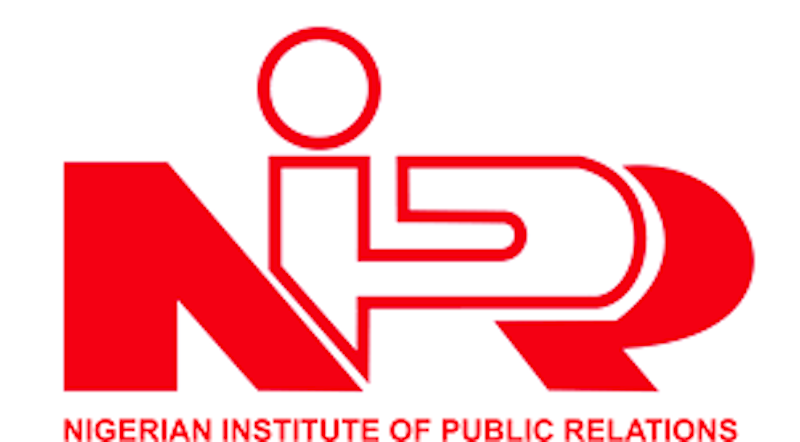……Unhooking NIPR from the Path of Jacobinism
The Nigerian Institute of Public Relations (NIPR) is circulating a memo to military chiefs and other security agencies to press its case against what it calls “the appointment of unlicensed and unregistered professionals as spokespersons”. It would be best if the NIPR stops embarrassing the country and itself by stopping that badly conceived, power seeking centrality in that practice in Nigeria. It has to do so because there can be no grounds for what they seem to want by its nauseating argument that only members of the Institute may be appointed spokespersons to high state officials, including the military. That is a modern version of Jacobinism that must be contained.
It hooks up its maximalist claim to a law which it says gives it a legal cover. But the law in question can only be a case of ‘dead on arrival’ because it conflicts with express constitutional provision for freedom of conscience, freedom of association and all other such liberal rights.
In practical terms, NIPR cannot get what it is seeking through the backdoor because at no time will political office holders choose image handlers just because they are members of some NIPR. The job will ever be given to those they trust. Most political office holders will, justifiably, appoint media managers who speak not just the same ideological language with them but also tendency language. That is, someone who knows what they “mean” in whichever circumstances and/or who are trained in the politics of meaning.
Similarly, military chiefs and field commanders have absolutely no need to appoint anyone to manage their public affairs department just because such fellows are members of NIPR. Such would be very unproductive appointments because there is nothing NIPR membership will teach an officer that will make him or her a sensation on the job without good mastery of the relationality of meaning or hegemonic articulation. There is absolutely nothing that NIPR can contribute to that at its current level of theory and practice of PR.
In the age of informationalised capitalism, the kind of boundaries between practical domains that NIPR is talking about have disappeared. A scholar of the “linguistic turn” in Biology, for example, speaks the same language as one in Political Science, Architecture, Geography, Physics or Linguistics. They are all served by relational epistemology and they analyse the world from a same way of what makes sense or doesn’t.
So, the world has moved far from the rationalist epistemology that held sway. The mandarins of NIPR might only not have known this only because they might have been taking lessons from short Online courses from North American universities and business schools. As prestigious as some of these schools are, they have either retained commitment to rationalism as the epistemology of the status quo or think it is the stuff the kind of people who patronise their online courses need. This is in spite of the fact that all the metatheoretical convulsions in the past 60 or so years played out in the United States, be it Derrida’s ground shaking presentation in 1966 which took place at John Hopkins and, subsequently, Yale University; the presidential address of the International Studies Association with which Robert Keohane provoked the “Perestroika” revolt in methodology in 2000. This is why only short Online courses and “problem-solving” Business Schools might be the source of the kind of argument the NIPR is posing.
Public Relations or whatever other fancy names we may call it is the most complete testimonial for interpretivist social science. The idea that reality or that a particular image can be naturalised and made commonsensical about a person or an organisation or an idea arises from a constructivist ontology, never from Realism and its rationalist philosophy. However, North America has dominated both the scholarship and practice of PR, shaping it as a craft, the sort of professionalism that NIPR obviously wants to import, hook, line and sinker. Unfortunately, it is too late in the day to succeed with that because the world has already entered the era of the “Empire of signs” with the resurrection of Wittgenstein and his language game point of departure.
If Wittgenstein is a strange name to our NIPR mandarins, here is something closer home. When Dr Adekeye Adebajo and the late Prof Raufu Mustapha published their fascinating book, Gulliver’s Troubles: Nigeria’s Foreign Policy After the Cold War, one of the defects the duo drew attention to at every point of the book presentation is this unhinging of practical domains from their philosophical roots. In this case, it was the late moral beacon, Professor Dora Akunyili’s ‘re-branding’ Nigeria campaign against which they cautioned.
The reason the duo advanced for cautioning against it is probably worth quoting in extenso: “Recently, we hear a lot of talk about ‘re-branding’ Nigeria. With all due respect, it must be said that foreign policy is not marketing. How a country is perceived abroad, and how her citizens are treated, is a reflection of its perceived internal strengths and weaknesses. No amount of packaging and re-packaging can escape from this reality“.
The duo of Raufu and Adebajo have a problematic position in suggesting the possibility of a rigid distinction between perception and reality but the point about the contextual limits of what they call ‘packaging and re-packing’ is the sort of argument that the segment of the Nigerian elite concentrated in PR/Advertising and Marketing ought to have taken note of and reflected upon. They ought to because Raufu Mustapha and Adebayo Adekeye are some of our best and brightest, products of Oxford University who, in the case of Raufu, was retained in that university while Adekeye is no less an established name in foreign policy scholarship.
What is obvious is that neither NIPR nor the Nigerian foreign policy establishment took adequate note of that and similar arguments. Otherwise, how does anyone make a pointless pronouncement as the NIPR has been making in Dr. Patrick Dele’s country; in Dr Stanley Macebuh’s country and in Bolaji Akinyemi’s country, Akinyemi being the coiner of the ‘godfather complex’ as the grounding of British media narrativisation of the Nigerian Civil War. These are some of the Nigerians who understand what Public Relations is all about. Although Akinyemi is a neorealist, he is at home with rhetorical analysis which is today a key methodological practice with the coming of the ‘linguistic turn’. One can go as far as conjecturing that it is people like Akinyemi that Barry Buzan had in mind in making the over-confident statement about the timelessness of the wisdom of Realism, adding how Realism has settled accounts with and swallowed all other contending paradigms in the social sciences.
Buzan could say such a thing before the classics of deconstruction arrived on the scene, particularly David Campbell’s 1998 book titled Writing Security. This is not to overlook the interesting echoing of Buzan, a doyen of top tier British universities as the London School of Economics, the University of Warwick as well as the University of Aberystwyth was echoed by a front rank scholar as Ole Waever, the University of Copenhagen theorist of securitisation, who overstretched boldness by calling Kenneth Waltz – the granddad of (neo) realism – a constructivist.
The point in all these is that Public Relations belongs in interpretive approach to scientific analysis and nobody without that paradigmatic background can be anything but a craftsman at best and a quack at worst. As we all know, the difference between the soldier and the officer is the difference between the philosopher and the craftsman respectively. The officer may be a disaster in marksmanship but he alone can decide which spot the marksman must aim at.
This is what NIPR is not taking into consideration, partly because it seems that whenever any set of Nigerians are bent on carving an enclave of power for themselves, they conveniently forget who said what and whatever was said before on the chosen strategy. But it is astonishing. It is astonishing because, how does anybody enforce what NIPR is talking about in a world in which a Donald Trump needed his twitter handle rather than an image maker to communicate himself, to declare that his Secretary of State was wasting his time in the middle of a negotiation and so on. Yet, he could access the US nuclear codes if he was that determined.
NIPR chief, Dr. Ike Neliaku looks and acts suave and is thus a fellow who should stop embarrassing himself by getting entangled in this campaign. Nigeria has gone beyond that. If the history and balance of social force in some other countries warrants the centrality of membership of their NIPR as a condition for appointment, that does not automatically recommend it to Nigeria because, ideally, Nigeria should be the pace setter, not the copycat.
If the NIPR has nothing original and innovative about reviving a highly decayed system as Nigeria currently is, it should not add to the decay through unconscionable power games. NIPR has a lot of potential in the context of the discourse – power nexus and in the age of the ‘Empire of signs’ but it should push its cadres to be properly schooled in what is going on in that domain. It is not because these cadres are not intelligent. It is simply that academia in Nigeria is yet to catch much of the convulsions in post-Cold War developments in knowledge production.
That is why image making for Nigerian governments is defensive, tame and incapable of adding value to hegemony as a power resource. The reason for that is not the incompetence of spokesperson but that more than 90 % of them are journalists who are themselves products of the dominant epistemic tradition in Nigeria, historically; meaning that they are hardly at home with governmentality, at the core of which is discourse as an articulatory process rather than its flimsy, dictionary sense. Unfortunately, this dominant epistemic tradition controls the core of the discursive spaces in Nigeria – the media, civil society, academia and the policy mill and which explains the celebration of singularity in Nigerian media, for example, probably more than anywhere else in Africa. Every day, Nigeria pays a price for that even as bold and adventurous as the country’s media industry is.
I can take the position I have articulated in this piece because, at my age, I cannot be anybody or any government’s image maker again. I oppose NIPR only because I do not want second hand ideas and practices in Nigeria. So, ‘we’ shall block the NIPR campaign because it adds nothing original to Nigeria. NIPR has the option of making itself so attractive that everyone might want to be a member rather than the antediluvian temptation of tying everyone’s hands to select spokespersons from its membership. That strategy has already failed even before it unfolded.
Onoja who is now a researcher at the University of St Andrews in the UK was Special Adviser on Media Affairs to Sule Lamido as Minister of Foreign Affairs and governor of Jigawa State




